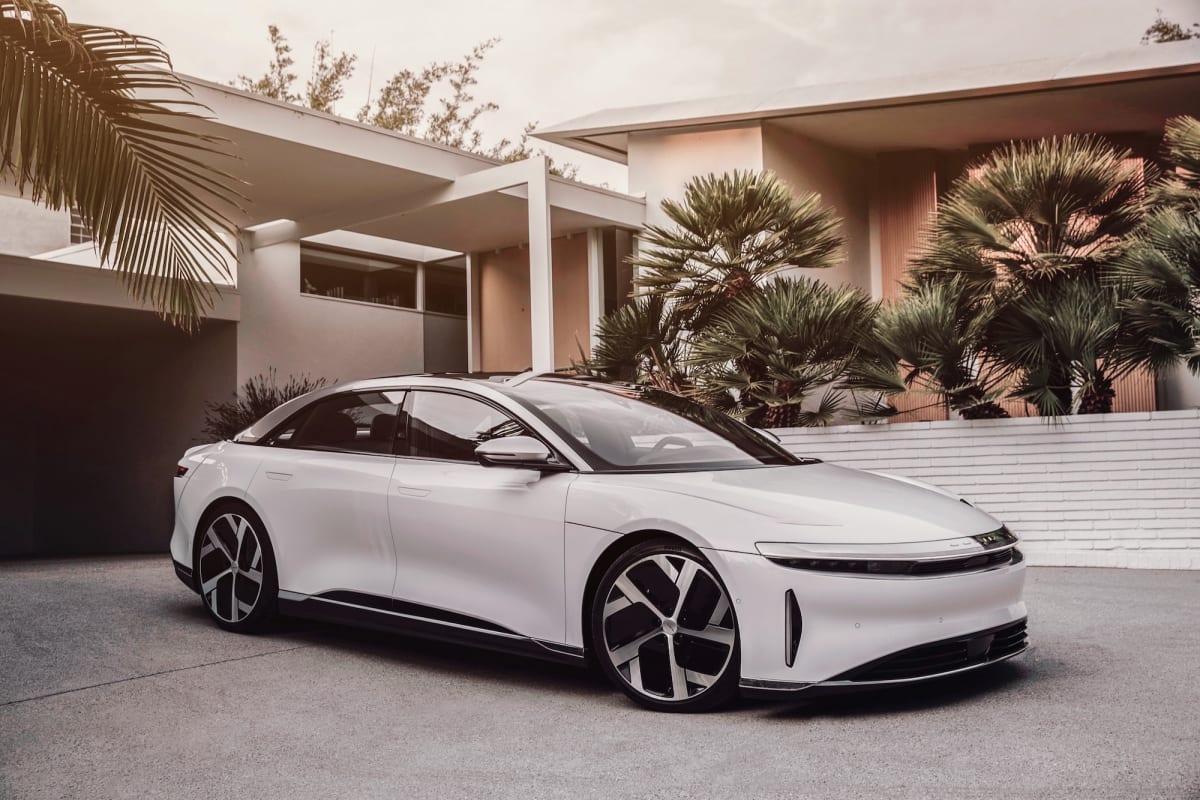
When Elon Musk tweets, people listen.
The billionaire Tesla (TSLA) CEO and recent Twitter owner tends to stir things up whenever he lets his fingers do the talking.
His Twitter takeover has courted seemingly no end of controversy with mass layoffs, the reinstatement of former President Donald Trump's account, and the elimination of its policy against covid-19 misinformation.
The changes has led many advertisers to slow their spending on Twitter and leave the microblogging website entirely.
On Dec. 9, he used the platform he purchased for $44 billion to offer a severely negative prognosis for an upstart producer of electric vehicles, a direct competitor to Tesla.
Lucid Reportedly Having a Tough Time of It
Lucid, the Newark, Calif., EV maker, was the subject of a Business Insider article that cited internal emails describing an aggressive approach to stem cancellations for the Lucid Air electric sedan.
"Every cancellation is a failure," read an email sent to Lucid retail employees, and laid out a process for "saving" those failures.
The process included potentially barraging customers with phone calls from employees for as long as two weeks before cancellations were finalized.
Lucid has been facing some serious challenges. Problems with the supply chain and logistics forced the company to twice revise down its production targets.
The company said it built 2,282 cars in the third quarter, while delivering 1,393 of them to customers. From January through September, it delivered two-thirds (66%) of the 3,687 cars it produced.
Lucid's Twitter page bears the slogan "Here for luxury. Here for performance. Here for good."
But the Chief Twit, as Musk calls himself, had his doubts.
Lucid 'Not Long for This World,' Musk Tweets
“They are not long for this world,” Musk tweeted in response to the story.
Lucid, which released new details about Gravity, its first luxury electric SUV, on Nov. 15., did not immediately reply to a request for comment.
This is not the first time Musk has commented on Lucid's future.
Earlier this year, Musk said during a podcast interview with the Tesla Owners Silicon Valley Club that both Lucid and electric-truck startup Rivian (RIVN) were "tracking toward bankruptcy."
He warned that unless the companies "can cut their cost dramatically, they are in deep trouble and will end up in the car cemetery like every other (US automaker) with the exception of Tesla and Ford.” (F)
Rivian is having its own problems managing ramp-ups and supply-chain disruptions.
For the third quarter, the company, which counts Amazon (AMZN) as one of its shareholders, posted a net loss of $1.72 billion, against $1.23 billion in the year-earlier period.
Soros and Analysts Weigh In on Tesla Rivals
Billionaire investor George Soros has been moving away from both vehicle makers. He has reduced his Rivian shares and holds put options for 400,000 Lucid shares, indicating that he believes the stock price will go down in the short term.
Over on Wall Street, Evercore ISI analyst Chris McNally initiated coverage of Lucid Group on Nov. 29 with an in-line rating and $12 price target.
He said Lucid has both extensive vertical integration and a leading e-powertrain aimed at the ultra-premium EV segment. Lucid epitomizes an "aspirational EV," the analyst said.
McNally said his in-line rating comes "with a slight negative bias," as Lucid has "a long way to go on both" expanding its addressable market and meeting its funding needs.
Seth Leitman, author and electric-vehicle-industry analyst, said he didn't think "Lucid was dead just yet."
"However, if things don't improve in a year or so, they will need some serious help," he said. "That's in part because their stock needs to improve and so do deliveries."
EV Upstarts Face Big Obstacles: Duke Professor
Timothy Johnson, professor of the practice of energy and the environment at Duke University, noted that starting an auto manufacturer is a complicated and risky venture. Tesla itself faced significant challenges getting to where it is today, he said.
"You need a lot of capital to get going and cover the long stretch between startup and volume production," he said.
"If Lucid's investors remain patient, and if the company can cover its cash flow, and if it can work out the inevitable early production issues, I believe the EV market is large enough to support another luxury brand."
"That is a lot of 'ifs', of course," he said.
Johnson his bigger "concern affects not just Lucid but all EV manufacturers and involves battery mineral supply and processing capacity."
"As light-duty and freight vehicle manufacturers attempt to increase their electric offerings at the same time stationary power grid storage is increasing, we will likely see supply chain constraints that will slow production and drive costs up over the rest of this decade," he said.
Johnson said "more established companies that have locked in supply contracts will fare better than startups that may fall victim to supply constraints, should the related delays prove significant."
It's important to note that Musk has also praised his competitors.
Ford (F) Chief Executive Jim Farley said quite plainly that his company plans "to challenge Tesla and all comers to become the top EV maker in the world."
Yet when the company said on Nov. 30 that it had produced its 150,000th Mustang Mach-E since starting production nearly two years ago, Musk tweeted congratulations to Farley.







